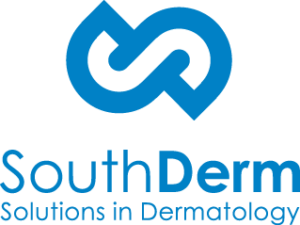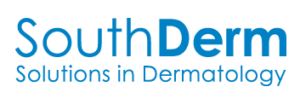Rosacea
Overview
If you have rosacea, our specialist dermatologists at SouthDerm, Kogarah, Sydney, are able to help you treat and manage this skin condition. There is no known cure for rosacea. The goal of treatment is to improve the appearance of the skin and to minimise recurrences.
WHAT IS ROSACEA?
Rosacea is a long-term skin disease that primarily affects the face but may also occur on the neck, chest, scalp or ears. It often begins as patches of redness that come and go. The redness may be accompanied by a burning sensation, particularly when creams or cosmetics are applied to the face. Over time the redness tends to become more pronounced and lasts for longer periods of time. Some people start to develop visible blood vessels, bumps and pimples in the affected areas. In severe cases the nose can become swollen and bumpy. Some people with rosacea also develop irritated, watery or bloodshot eyes.
WHAT CAUSES ROSACEA?
The exact cause of rosacea is unknown, but it may be an inherited condition. The condition tends to affect people over the age of 30 with fair skin and seems to be more common in those with history of frequent blushing or flushing of the face. It is also more common in females than males. Episodes of rosacea may begin for no apparent reason or be triggered by factors such as exposure to sunlight, stress, use of steroid creams and certain skin care products, cold or humid weather, some foods, hot drinks and alcohol.
Click on the treatment tab at the top of this section for more information on the treatment of rosacea.
All medical and skin cancer treatments are carried out in our southern Sydney, Kogarah, skin cancer and cosmetic surgery clinic.
Treatment
HOW ROSACEA IS TREATED
There is no known cure for rosacea. The goal of treatment is to improve the appearance of the skin and to minimise recurrences. Each case is unique, but the most common treatment plans include:
- Lifestyle changes: it is important to use a daily sunscreen with a high sun protection factor (30+) to protect the skin and reduce the chances of flare-ups. Some women find that using special green-tinted foundation and makeup can conceal the redness of the skin.
- Topical antibiotics: these are creams or ointments applied directly to the skin.
- Oral (by mouth) antibiotics: tablets may be used for more severe cases of rosacea to reduce pimples and any infection on the skin. It is more challenging to treat the redness and flushing.
- Lasers and Intense Pulsed Light Treatments: may be used to remove visible blood vessels and reduce extensive redness. At SouthDerm we use a sophisticated Intense Pulsed Light (Sciton BBL), which provides excellent results for the removal of blood vessels.
- Laser Surgery: may be required to remove excess tissue (known as Rhinophyma) around the nose.
- Special eye drops: may be required if rosacea affects the eyes.

